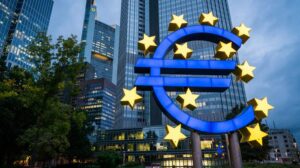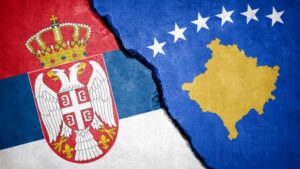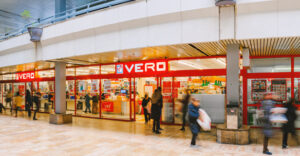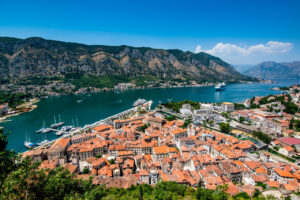
Preferential roaming between Ukraine and the EU will remain available until the end of 2025, according to the National Commission for the State Regulation of Electronic Communications, Radio Frequency Spectrum, and Postal Services (NCC).
According to a statement on its Facebook page on Wednesday, the NCCIR and the European Commission confirm the extension of the Joint Statement between Ukrainian and European operators on ensuring roaming for Ukrainians in the European Union for the next six months, until December 31, 2025.
It is noted that this is the sixth extension of the agreements, which have been in force since April 2022.
“Staying connected is a basic need that becomes critical in times of war. Since the first days of the full-scale invasion, the NCCIR has been working to ensure that Ukrainians remain connected, including abroad,” said NCCIR Chair Lilia Malyon.
“The joint statement has become an exceptional and effective tool. I am grateful to Ukrainian and European operators who continue to provide favorable conditions for Ukrainians, as well as to colleagues from the EC and BEREC for their support and joint work. Our team continues to move confidently towards a Single Digital Market for roaming in the EU,” Malion added.
In addition, the joint statement also provides favorable communication conditions for EU citizens in Ukraine.
The press service also reminded that the NCC team, together with colleagues, is completing work on Ukraine’s accession to the EU’s single roaming area “Roaming Like at Home” (RLAH), which is expected as early as January 1, 2026.

The European Central Bank (ECB) considers the current level of key interest rates to be justified and remains committed to the goal of maintaining inflation in the euro area at 2% in the long term, ECB President Christine Lagarde said.
“Our aspiration, commitment and duty is to ensure price stability, and this corresponds to inflation in the region of 2%,” she said in an interview with the German newspaper ARD. “We have succeeded, inflation is already at 2%, and we will continue to work in this direction.
“We will do everything necessary to ensure that inflation remains at this level,” Lagarde added. “Uncertainty is high, we are surrounded by unpredictability, but there is confidence and stability in terms of prices.
Meanwhile, François Villeroy de Galo, Governor of the Bank of France and member of the ECB Governing Council, warned that the 14% strengthening of the euro since the beginning of the year poses a risk of too low inflation.
In his opinion, a 10% rise in the euro reduces inflation by 0.2 percentage points over the next three years.
“This may increase the risks that inflation will be below our target, and we cannot ignore this,” de Galo said.
Earlier, ECB Vice President Luis de Guindos noted that the rise of the euro/dollar pair above $1.2 could complicate the central bank’s task of achieving the target inflation rate.
The ECB has cut rates eight times over the past year, and now the key deposit rate is 2%. Analysts and market participants generally expect that the regulator will not change rates at the July meeting in order to assess the impact of the measures already taken on the eurozone economy.

According to Serbian Economist, trade between Central Serbia and Kosovo is growing rapidly, with Serbian goods actively returning to the region’s markets. According to the Kosovo Business Alliance, imports from Central Serbia in the first six months of 2025 reached €110.53 million, compared to €50.64 million in the same period of 2024 — an increase of 118%.
An analysis of the sector shows that consumer goods and food products, including non-alcoholic beverages, foodstuffs, as well as construction materials, agricultural machinery, and mineral fertilizers, have risen in price and expanded their market presence. These categories traditionally form the basis of trade between Serbian suppliers and Kosovar consumers.
According to experts, the return of Serbian goods became possible after the easing of import barriers, including the lifting of the total ban and the introduction of post-border controls at the Merdare checkpoint.
Experts note that the restoration of access to convenient logistics and price attractiveness strengthens Central Serbia’s position in the Kosovo market.
The Kosovo Business Alliance, an association of companies trading in the region, analytically monitors trade flows and violations. Since 2023, Kosovo has gradually eased import restrictions on Serbian goods, including through the Merda checkpoint, which has led to a revival of trade.
Imports of Serbian goods are rapidly recovering in the Kosovo and Metohija market, sending not only an economic but also a political signal — a thaw in trade relations.
Source: https://t.me/relocationrs/1156

Greek retail chain Veropoulos, known in Serbia under the Super Vero brand, has announced that it will continue its expansion in the country with the launch of new locations starting in 2026. The company plans to strengthen its presence after more than 20 years of successful operations.
The company has been present in Serbia since 2001, with the first Super Vero store opening in 2002 in New Belgrade. As of 2017, total investment amounted to €48 million, with 500 employees and 15,000 m² of retail space.
In 2013, Veropoulos invested an additional €20 million in projects to build new stores: at that time, three supermarkets were in operation, a fourth was under construction, and a fifth was being prepared for launch. The total number of employees grew to 650.
Growth plans: 2026 and beyond
• Several new stores are expected to open in 2026, including the Jumbo format. The company is preparing sites in various districts of Belgrade and other cities.
• Super Vero specializes in Georgian and Greek products, household goods, and premium delicacies. Its product range includes fresh vegetables and fruits, seafood, olives, cheese, meat, groceries, and household goods.
Analytical information about Veropoulos
• Country of origin: Greece, parent company — Vero S.A., a family business since the 1970s.
• Investments in Serbia: €68-70 million over more than 20 years of operation.
• Staff: approximately 650 people (as of 2025).
• Store formats: Super Vero (supermarkets), Jumbo (hypermarkets with restaurants); floor space from 2,000 m².
• Product range: focus on high-quality products, a wide range of Greek, natural, and organic products. Fresh baked goods, seafood, and premium products are available.
• Brand strategy: positioned as a family brand that does not seek aggressive expansion but is committed to sustainable growth and development.
Source: https://t.me/relocationrs/1147

Montenegro is one of the most affordable countries in Europe in terms of real estate prices and one of the easiest in terms of legal formalities for foreigners. In recent years, it has become particularly popular among citizens of the CIS and EU countries due to its mild climate, sea, prospects for price growth, and loyal tax policy. However, when buying an apartment or house, it is important to understand what taxes and fees you will have to pay.
Main taxes when buying real estate in Montenegro
Rate: 3% of the market value of the property as determined by the tax authorities (not always the same as the price in the contract).
The tax is paid once, within 15 days after the conclusion of the agreement and submission of documents to the tax office.
Rate: 21%, already included in the contract price.
In this case, the property transfer tax (3%) is not levied.
Property ownership tax
The rate is set by municipalities and usually ranges from 0.1% to 1% of the cadastral value (depending on the location, type, and condition of the property).
For example:
Apartment in Budva or Kotor — approximately 0.25–0.5%
Properties on the coast and in tourist areas are taxed at a higher rate
The tax is paid once a year, usually by the end of March.
Important: a penalty is charged for late payment.
Additional costs
Renting real estate: taxes for the owner
If the property is rented out, the owner is obliged to:
Obtain a short-term rental permit from the municipality.
Keep a register of guests and pay tax:
Fixed tax on rental income — 9%.
Plus tourist tax per guest — approximately €1 per night.
From 2024, compliance with these requirements will be actively monitored (introduction of electronic accounting systems).
Example
Apartment in Budva for €150,000, purchased from a private individual:
Property transfer tax: 3% = €4,500
Annual property tax (0.4%): €600
Notary + registration fees: ~€1,000
In case of rental: income tax — 9% of profit
Montenegro offers a relatively simple and predictable tax system for real estate. One-time tax on purchase — 3% or 21% (for new construction), annual tax — low. Rental income is taxed at a moderate rate but requires compliance with formalities.
Source: http://relocation.com.ua/property-taxes-in-montenegro-what-buyers-need-to-know/

The rise in energy prices as a result of the conflict in the Middle East could weaken economic growth in the eurozone and thus smooth out inflation, said Luis de Guindos, deputy head of the European Central Bank (ECB).
“The emergence of the Iranian-Israeli conflict adds some uncertainty to the dynamics of oil prices,” The Wall Street Journal quoted him as saying. It is therefore important to keep a close eye on developments in the real economy as an indicator of inflation prospects.”
According to de Guindos, the increase in duties on European exports to the United States will certainly slow down inflation in the currency bloc, including because it will weaken economic growth.
“Higher duties are expected even if bilateral negotiations are successful,” the deputy head said. The ECB cut its key policy rate in June and made it clear that it was nearing the end of its monetary easing cycle. In May, inflation in the euro area was below the 2% target.
However, de Guindos’ comments suggest that the rate may have to be cut further to keep inflation around 2%, the WSJ writes.
Source: http://relocation.com.ua/rising-energy-prices-could-weaken-economic-growth-in-europe/